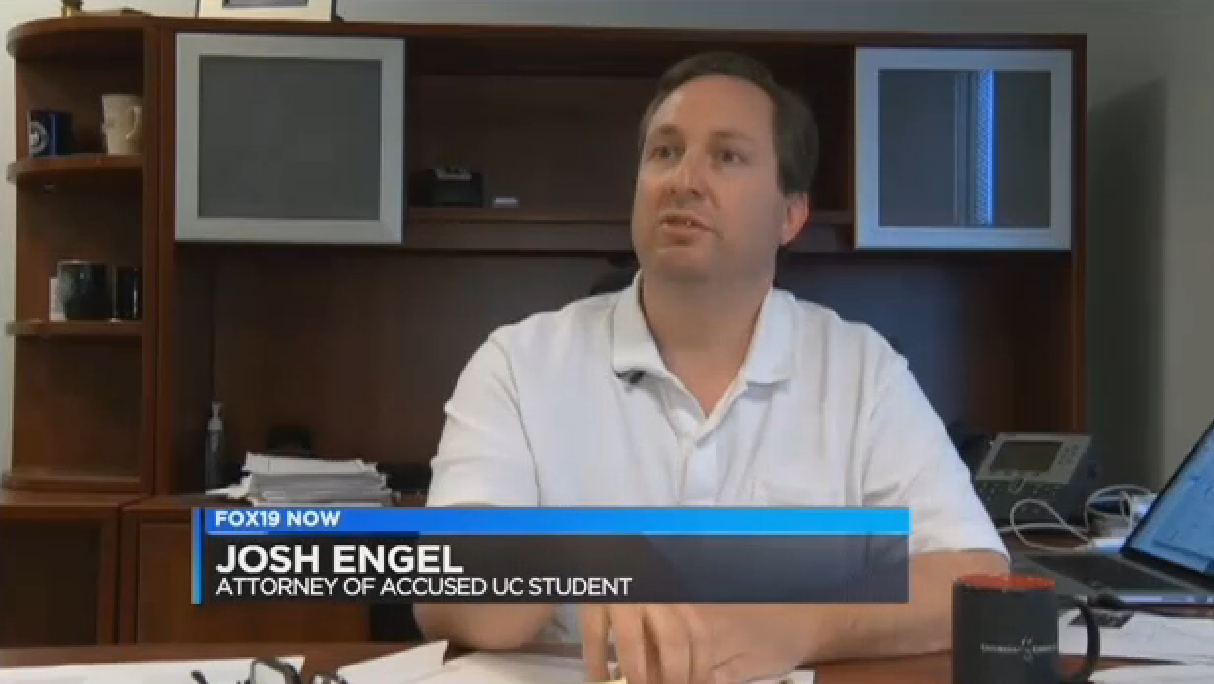
An academic blog has highlighted a recent due process case brought by Engel and Martin, LLC against the University of Cincinnati.
KC Johnson, a professor of history at Brooklyn College and the CUNY Graduate Center, wrote on Academic Wonderland: “The University of Cincinnati has a fascinating response to a recent lawsuit filed by two students alleging serious misconduct by UC and several of its administrators in sexual assault proceedings”
Johnson is referring to a case brought against the University of Cincinnati by two students. The students allege that the University imposed discipline on them in sexual misconduct cases only after conducting a biased investigation landholding hearings before a “kangaroo court.”
Attorney Joshua Adam Engel has filed three lawsuits against the University of Cincinnati since last year that question the university’s Administrative Review Committee hearings. Engel has also filed lawsuits against Ohio State University, Ohio University, Marietta College, and the University of Houston.
Johnson observed that UC disciplined the students:
after an almost comically biased procedure. A UC administrator informed the accused student that “neither party has any burden of proof.” (This assertion misstated UC regulations; even the preponderance of evidence threshold, which UC uses, imposes a nominal burden of proof on the school.) The accused student went before a disciplinary panel trained with such inflammatory, unsubstantiated allegations as “the average rapist rapes 14 people before he ever spends a night in jail” or “1 in 4 women will survive rape and/or sexual assault during her time in college”; citations to the discredited David Lisak’s work on undetected rapists; and misstatements of UC policy (the training asserts that consent needs to be “verbal and “ongoing,” and that the female student must be “sober,” even though UC’s actual policy contains no such requirement).
Johnson later observes that UC seems to have accepted that its system is unfair, but seemingly does not care:
UC retorted that none of this really matters—that the university only was obligated to hold a hearing and to inform both students of the charges against them, obligations that UC fulfilled. A fair process that might determine the truth, UC filings suggested, is beyond the legal obligations for any university. (Left unsaid was why a university wouldn’t want such a process.) UC purports to concede, citing relevant 6th Circuit precedent, that “a public university student who is facing serious charges of misconduct that expose him to substantial sanctions should receive a fundamentally fair hearing.” But to justify its denial of basic fairness to the two students in these cases, the university relied onJackson v. Dorrier, a 1970 case involving a high school policy prohibiting male students from having long hair. (“To hold that the relationship between parents, pupils and school officials,” the 6th Circuit ruled, “must be conducted in an adversary atmosphere and accordingly the procedural rules to which we are accustomed in a court of law would hardly best serve the interests of any of those involved.”) It’s remarkable that UC could consider a grooming policy for high school students to be somehow relevant to whether a college student is entitled to fundamental due process when facing a life-altering sexual assault allegation. But perhaps not too surprising: UC also contends that even if its policy placed the burden of proof on the accused (which university briefs somewhat ineffectively denied), doing so “would not compel a finding that due process was violated.” Ponder that again: a public university has publicly affirmed that a policy that presumed students guilty of sexually assault would be constitutionally acceptable.
